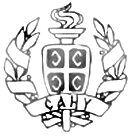Приказ основних података о документу
Purism and antipurism in present-day Serbian
Пуризам и антипуризам у данашњем српском језику
| dc.creator | Клајн, Иван | |
| dc.date.accessioned | 2018-05-19T18:03:56Z | |
| dc.date.available | 2018-05-19T18:03:56Z | |
| dc.date.issued | 2008 | |
| dc.identifier.issn | 0350-185X | |
| dc.identifier.uri | https://dais.sanu.ac.rs/123456789/2881 | |
| dc.description.abstract | As in other Balkan languages, Serbo-Croatian vocabulary is of mixed origin Ever since its earliest days, some of the commonest words were borrowed from Greek, Latin, Italian, Turkish, Hungarian, and in more recent times from Russian, Czech and German. For this reason most loanwords are received without resistance in Serbia. The same openness is shared by practically all Serbian linguists, while purist attitudes are only to be found among laymen. A less relaxed policy might prove to be advisable towards the Anglicisms of today, since global English is more universally present and more penetrating than any foreign language in the past. In Croatia, on the other hand, purism was adopted as an official policy, first as a response to the threats of Germanization (within the Austro-Hungarian empire) and later to the presumed Serbian domination (in Yugoslavia). As a consequence, the mechanisms of word formation are better developed in Croatian, but at the same time many artificial coinages and recycled archaisms have been launched, leading to what is known as the 'Croatian Newspeak'. While Croatian linguists are constantly on the guard against Serbianisms, in Serbia many Croatian words have been adopted almost without resistance, especially when they are shorter, more practical or more precise than their Serbian equivalents. | en |
| dc.description.abstract | Za razliku od hrvatskog, u kome se kao i u drugim jezicima pod austrougarskom vladavinom razvio purizam, u srpskom je lako prihvatanje pozajmljenica postalo jedno od trajnih obeležja jezičkog standarda. Takav stav zauzimaju i današnji srpski lingvisti, a retke manifestacije purizma zapažaju se isključivo među laicima. Dok se u Hrvatskoj od sredine prošlog veka pa sve do danas vodi stalna kampanja protiv srbizama, u Srbiji su mnogobrojne hrvatske reči prihvaćene kao obogaćenje rečnika, bez većeg otpora. Istovremeno, hrvatski 'novogovor' s prisilnim građenjem veštačkih kovanica i oživljavanjem arhaizama služi kao opomena na šta bi srpski jezik ličio kad bi se i u Srbiji počelo s progonom tuđica. | sr |
| dc.rights | openAccess | |
| dc.rights.uri | https://creativecommons.org/licenses/by-nc-nd/4.0/ | |
| dc.source | Јужнословенски филолог | |
| dc.subject | purizam | sr |
| dc.subject | antipurizam | sr |
| dc.subject | strane reči | sr |
| dc.subject | pozajmljivanje | sr |
| dc.subject | srpski jezik | sr |
| dc.subject | hrvatski jezik | sr |
| dc.title | Purism and antipurism in present-day Serbian | en |
| dc.title | Пуризам и антипуризам у данашњем српском језику | sr |
| dc.type | article | |
| dc.rights.license | BY-NC-ND | |
| dcterms.abstract | Klajn, Ivan; Purizam i antipurizam u današnjem srpskom jeziku; | |
| dc.citation.spage | 153 | |
| dc.citation.epage | 176 | |
| dc.citation.issue | 64 | |
| dc.identifier.doi | 10.2298/JFI0864153K | |
| dc.type.version | publishedVersion | |
| dc.identifier.fulltext | https://dais.sanu.ac.rs/bitstream/id/20610/2959.pdf | |
| dc.citation.other | (64): 153-176 | |
| dc.identifier.rcub | https://hdl.handle.net/21.15107/rcub_dais_2881 |
Документи
Овај документ се појављује у следећим колекцијама
-
Јужнословенски филолог / Južnoslovenski filolog
ISSN 0350-185X; eISSN 2406-0763

